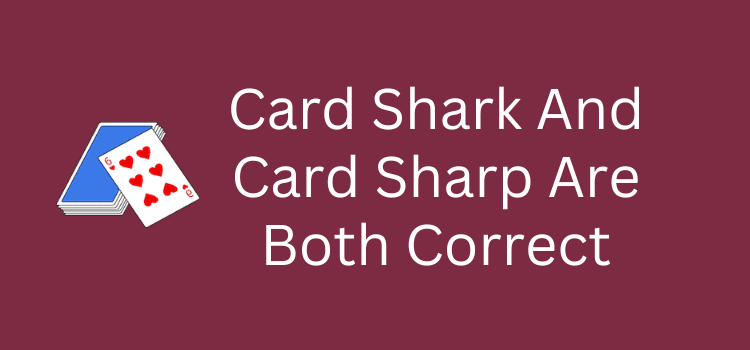
I read a newspaper article that described someone as a card sharp and immediately wondered if a card shark was also correct.
My first assumption was that it might be a difference between US and British usage.
But after a bit of research, it didn’t seem to be as simple as that.
Both expressions are correct, but usage might depend on small variations in definitions.
The difference between a sharp and a shark
In the expressions referring to cards, these two words are usually nouns.
According to the Oxford Dictionary (both US and British), a sharp is a swindler or cheat.
As a verb, to sharp someone is also to swindle or cheat.
There is also another noun, a sharper, that carries the same meaning.
But Oxford adds this definition under adjective use. Quick to take advantage, especially in an unscrupulous or dishonest way.
But a shark is slightly different, with two variations.
1. A person who unscrupulously exploits or swindles others.
2. An expert in a specified field.
Interestingly, Oxford also adds that the origin of the word is the late 16th century and perhaps from German Schurke, meaning worthless rogue or villain.
The result is that both words have very similar but slightly different meanings when used in card sharp and card shark.
Which one should you use?
If you are writing a scene about a tense game of poker in a Wild West saloon or a crafty blackjack player in a casino, should you use sharp or shark?
Well, the answer is, as always, it depends.
However, my initial assumption about British and US usage was not misguided.
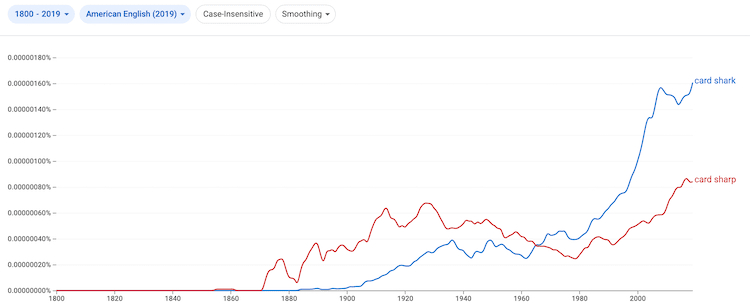
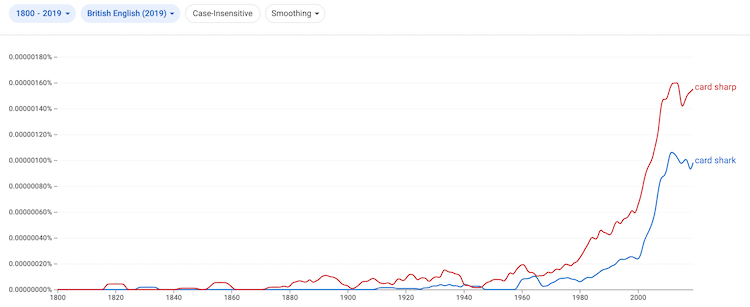
You can see in the two graphs above that card shark is more frequently used in American English.
In British English, card sharp is more common.
However, what is interesting is that neither expression really gained traction in British English until the 1970s.
But in US English, card sharp appeared as early as the 1870s and was more prevalent up until the 1940s.
So it would seem that over time, card sharp evolved into card shark.
How do you interpret the definitions?
Obviously, we are not referring to big, nasty fish with fins and razor-sharp teeth.
But perhaps using card shark infers that the person is dishonest, a cheat, and preys on people.
You could think of other uses such as a property shark, loan shark, or publishing shark.
On the other hand, a card sharp might give a sense that the person is clever and skilled but still a cheat and unscrupulous.
Whichever one you choose, you will be 100% correct.
But if you are meticulous about your word use, you might consider one or the other in different contexts.
Usage of the expressions in newspapers
Using a site: search of The Guardian, I found that it commonly uses both expressions.
Here are some examples.
“A Cockney card sharp called Tosh – a special branch officer working undercover – is one of a new cast of characters who take on the villain Hugo Drax.”
“There are several pitfalls to this plan, which could catch out the would-be card shark.”
On the other side of the Atlantic, I checked The New York Times. It also uses both regularly as well.
“Hell hath no fury like a scammer foiled. The card shark caught marking the deck, the auto dealer caught resetting a used car’s odometer, is rarely contrite.”
“But let a card sharp explain his work, and a different game is revealed.”
These examples only prove that the choice is up to the writer.
Conclusion
It’s only my personal preference, but I would probably use card shark in most instances.
However, there is a slightly different nuance to a card sharp. Perhaps it describes a little more finesse to cheating.
In the end, it makes little difference in writing.
Like free rein and free reign and champing and chomping at the bit, choose the one you are most comfortable using.
Related reading: Is It De-escalate Or Deescalate?
Share This Article
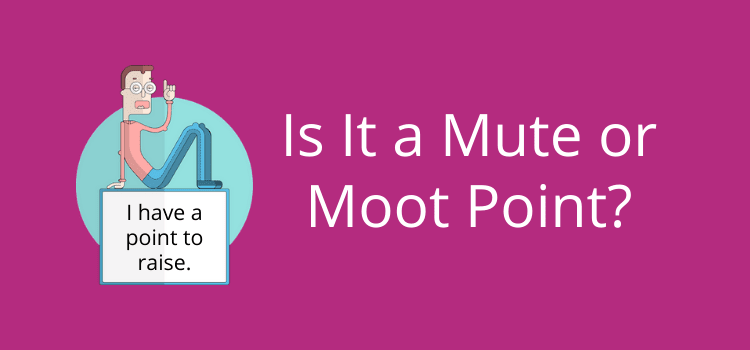

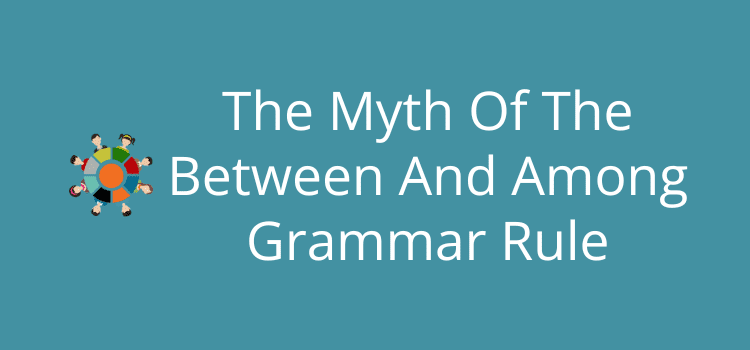
I disagree. I also don’t use “CHOMPING at the bit” just because other people do.
A card SHARP is NOT the same as a card SHARK…again, even though many lazy people over the years have migrated to SHARK….MOST of them never even knew it was something else to begin with.
Your explanation is okay, but it doesn’t really explain it at all…
A “Card Sharp” was a shortened version of “Card SHARPER” – so-named because he LITERALLY (Correct usage, btw…) SHARPENED the edges of some cards. This allowed him to know other player’s cards as he dealt them – he would feel the sharpened edges…